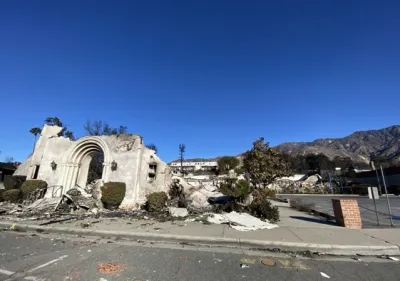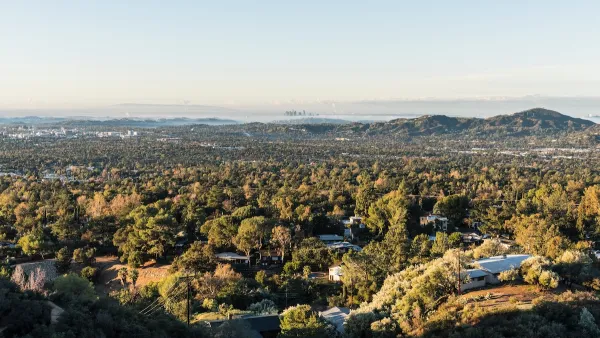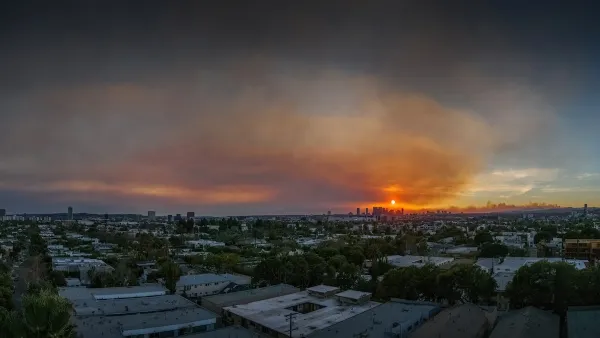The UCLA Luskin Center for Innovation offers expert guidance on LA wildfire response and recovery, addressing critical issues like water safety, air quality, equitable rebuilding, and climate adaptation to promote resilience and sustainability.

The UCLA Luskin Center for Innovation is offering expert guidance to support Los Angeles in addressing the immediate and long-term challenges posed by recent wildfires. The center’s experts are available to provide insights into key areas, including water supply and quality, air quality impacts, equitable land use and recovery planning, and the governance and politics of disaster response. Their goal is to help policymakers and communities navigate this crisis with evidence-based strategies that prioritize resilience, equity, and sustainability.
Gregory Pierce, co-executive director of the Luskin Center, emphasizes the need for improved coordination in water testing, treatment, and public communication to ensure safety and trust in drinking water systems impacted by wildfires. Rachel Connolly, an air quality and environmental equity researcher, highlights the dangers of wildfire smoke, recommending N95 masks, air purifiers, and updated school HVAC systems while advocating for better air quality monitoring tools to address toxic pollutants released during urban fires.
Land use and recovery planning are also priorities, with Megan Mullin urging a community-driven approach to rebuilding that prioritizes equitable investment and resilience rather than exacerbating existing inequalities. Edith de Guzman, a specialist in water equity and climate adaptation, brings critical expertise on the effects of extreme weather, such as the erratic Santa Ana winds that fueled the fires, underscoring the need for adaptive infrastructure and policies to mitigate future risks.
By addressing these interconnected challenges, the UCLA Luskin Center provides a comprehensive resource for leaders and residents. Their insights on disaster governance, the politics of response, and the broader impacts of climate whiplash aim to equip Los Angeles with the tools needed to recover from the immediate crisis while building long-term resilience against climate-driven disasters.
FULL STORY: UCLA Luskin Center for Innovation Research and Commentary on the LA Fire Response and Recovery

National Parks Layoffs Will Cause Communities to Lose Billions
Thousands of essential park workers were laid off this week, just before the busy spring break season.

Retro-silient?: America’s First “Eco-burb,” The Woodlands Turns 50
A master-planned community north of Houston offers lessons on green infrastructure and resilient design, but falls short of its founder’s lofty affordability and walkability goals.

Delivering for America Plan Will Downgrade Mail Service in at Least 49.5 Percent of Zip Codes
Republican and Democrat lawmakers criticize the plan for its disproportionate negative impact on rural communities.

Test News Post 1
This is a summary

Test News Headline 46
Test for the image on the front page.

Balancing Bombs and Butterflies: How the National Guard Protects a Rare Species
The National Guard at Fort Indiantown Gap uses GIS technology and land management strategies to balance military training with conservation efforts, ensuring the survival of the rare eastern regal fritillary butterfly.
Urban Design for Planners 1: Software Tools
This six-course series explores essential urban design concepts using open source software and equips planners with the tools they need to participate fully in the urban design process.
Planning for Universal Design
Learn the tools for implementing Universal Design in planning regulations.
EMC Planning Group, Inc.
Planetizen
Planetizen
Mpact (formerly Rail~Volution)
Great Falls Development Authority, Inc.
HUDs Office of Policy Development and Research
NYU Wagner Graduate School of Public Service





























